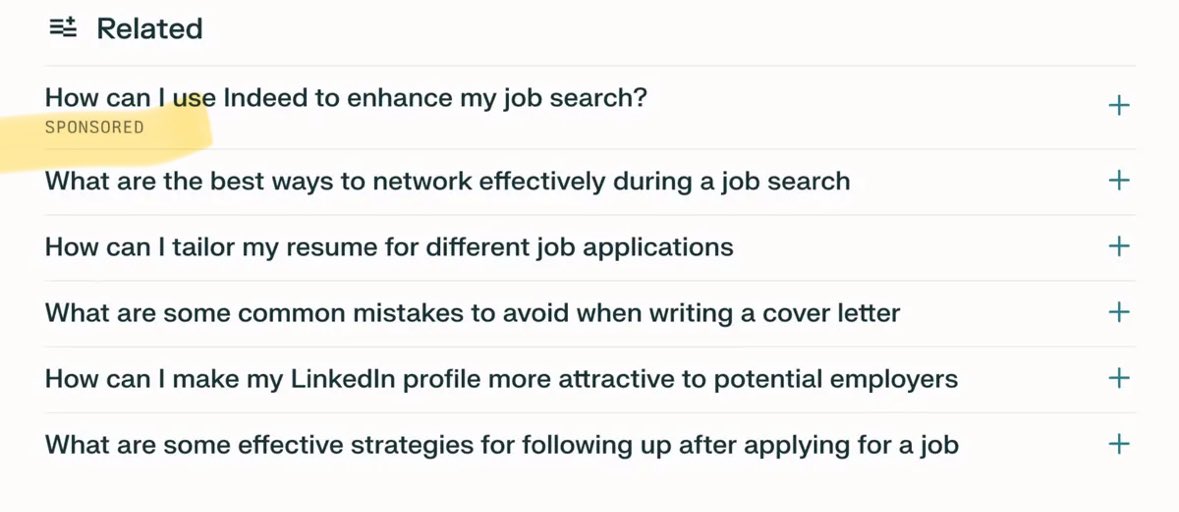There had been questions on how the growing numbers of LLMs will monetize their services, but a company appears to have taken the first step in looking to make money from its product.
Perplexity has introduced ads in its LLM results. Users have spotted ads in the “Related” section that appears after its search results. In a query that a user had input about job searches, Perplexity first gave its answer, and the first “Related” query was “How can I use Indeed to enhance my job search”. Perplexity does declare the query as being “sponsored”. The ads don’t show up in the paid version of the product.

These ads after search results could be a part of Perplexity’s bigger plan to make money from its free users. Just last week, Perplexity CEO Aravind Srinivas had said digital ads could soon be directed to AI agents instead of users themselves — users could input a search query, and companies would bid to pitch themselves to an AI agent, the AI agent would pick the company that makes the most useful offer, and then give the results directly to users. This would mean that users would never need to see any ads.
“So the moment I say, hey, I’m going to go to Ranthambore for two nights, plan my schedule, do my bookings. And the moment on the back end the agent begins to do that, you will have five travel companies or platforms or airlines competing for the agent’s attention. And that whole advertising economy was probably bidding for the lowest price or whatever is the setting that I gave,” Srinivas had explained.
But it appears that Srinivas has already integrated some ads within Perplexity. The ads seem to be relevant to the question itself, and seem to promote a particular brand. But unlike Google results, where the ads show up before the organic results, here the ad comes up after Perplexity’s own answer. This could mean that click-throughs aren’t as high on Perplexity’s ads as on Google. But the ads showing up are possibly a positive for Perplexity — the company does seem to have found product-market fit, and is now looking to come with with monetization model for its service. And being one of the first LLM companies could do so, it could end up shaping how advertising on AI LLMs will look like in the years to come.